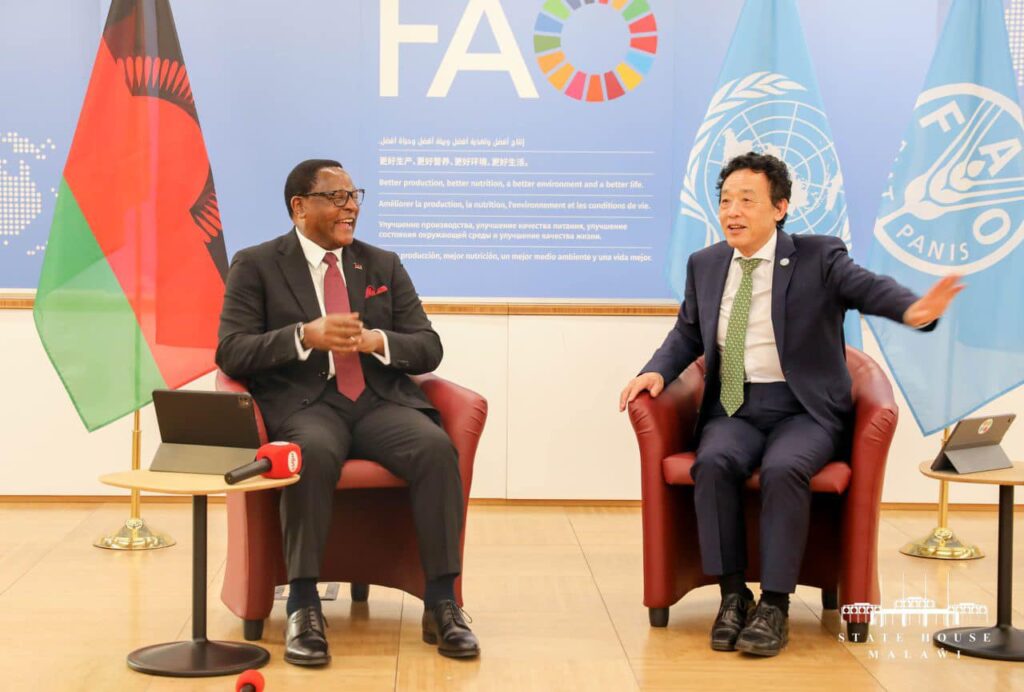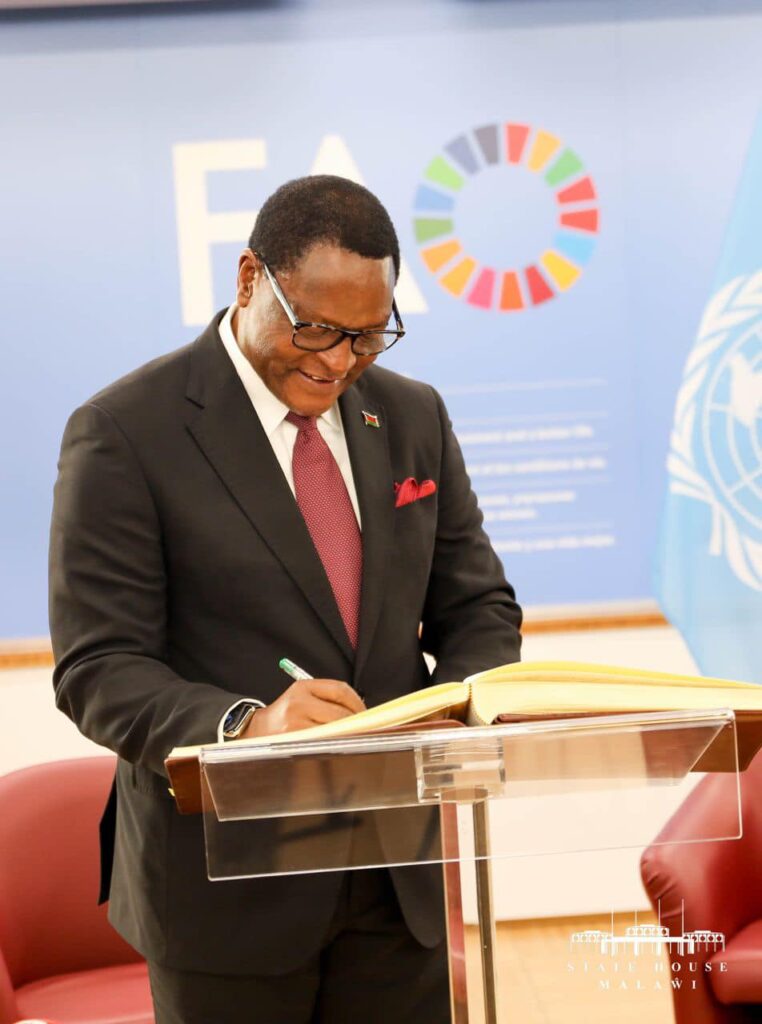Advancing Malawi’s Agricultural Future: President Chakwera’s Strategic Engagement with FAO in Rome
His Excellency Dr. Lazarus McCarthy Chakwera, President of Malawi, recently visited the headquarters of the Food and Agriculture Organization (FAO) in Rome, where he engaged in a strategic dialogue with FAO Director-General Dr. QU Dongyu. The meeting was anchored in Malawi’s long-term development blueprint, MW2063, which outlines the nation’s collective aspirations and goals leading up to the year 2063. Central to this blueprint are the three pillars of Agricultural Productivity and Commercialisation, Industrialisation, and Urbanisation, which are key to transforming Malawi’s economy and improving the livelihoods of its citizens.

During the meeting, President Chakwera highlighted the importance of agriculture within the MW2063 framework and the Agriculture, Mining, and Tourism (ATM) strategy. He emphasized that Malawi’s path to prosperity is closely tied to the transformation of its agricultural sector through commercialisation, mechanisation, and industrialisation. These efforts, he noted, are essential not only for achieving food security in Malawi but also for contributing to the broader food security of the region.
Dr. QU Dongyu reaffirmed FAO’s commitment to supporting Malawi’s development aspirations. He expressed a deep understanding of Malawi’s goals and assured President Chakwera of the FAO’s continued technical assistance to the country. The discussion was focused on practical steps to transition Malawi’s farmers from smallholder subsistence farming to more resilient, climate-smart agricultural practices. President Chakwera underscored the importance of equipping farmers to withstand the annual threats of floods and droughts, which have historically undermined agricultural productivity and food security in Malawi.

A key aspect of the dialogue was the promotion of women and youth in agriculture, as well as the integration of technology and innovation into the sector. Dr. QU Dongyu committed the FAO to prioritizing these areas, recognizing that the modernisation of agriculture is a critical catalyst for achieving food security, reducing poverty, and driving economic growth in Malawi. The FAO’s support is expected to play a vital role in enhancing agricultural productivity, improving market access, and ultimately transforming the agricultural landscape of Malawi.
President Chakwera’s visit to the FAO headquarters in Rome underscores the importance of international partnerships in achieving Malawi’s development goals. By engaging with global institutions like the FAO, Malawi is positioning itself to leverage technical expertise and resources that will accelerate its journey towards becoming a self-sustaining, industrialized nation by 2063. The commitments made during this visit are a significant step forward in realizing the vision of MW2063 and ensuring a prosperous future for all Malawians